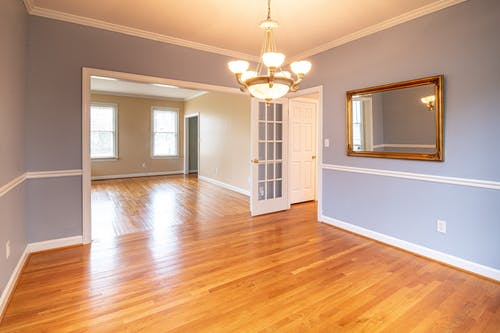There's no doubt that new wooden floors help in creating an inviting feel to your home. But, in today's day & age, the number of options that you have at your disposal is indeed massive, which can make the shopping process cumbersome.
Hence, we’re going to discuss in-depth solid versus engineered hardwood floors – two of the most popular options out there – so that you can take some progressive steps in your floor selection process.
All About Solid Hardwood Floors
According to a reputed company for wooden flooring in Wellington, solid hardwood floors are referred to as 3/4th hardwood floors, meaning that each floorboard is a solid piece of hardwood.
Since solid hardwood floors represent a thick piece of wood, you can easily sand & refinish them to look like engineered floors. Thus, with solid hardwood floors, you'll have the option to customize the way you want your floors to look.
Apart from having better longevity than engineered hardwood floors, pre-finished or site-finished solid hardwood floors options are available in the current market.
Prefinished hardwood boards are the ones that already come factory-designed and are ready to install almost immediately. On the other hand, site-finished hardwood boards are raw wooden boards that are installed on-site and then sanded & finished with the respective color & topcoat that you’ve selected.
All About Engineered Hardwood Floors
Contrary to popular beliefs, engineered hardwood floors don't mean that the floor is natural or fake. An engineered hardwood floorboard contains natural wood from the top to bottom layer, where the wooden layers are compressed & glued together. The top layer will contain high-quality wood and will thereby create a beautiful-looking & structurally-strong floor for your house.
The biggest benefit of using engineered hardwood floors is that – even though they're made out of natural wood – they're the least affected by moisture & humidity. This is because of the way engineered floors are processed and thus they're less likely affected due to temperature changes. Thus, you can expect engineered hardwood floors to have fewer gaps in between them due to temperature changes. Furthermore, engineered hardwood floors can also be sanded & finished.
Wrapping Up
So, you might be wondering – which is the better option for my usage?
Well, before you make the final decision, you have to ask the following set of questions:
- What type of climate are you living in? (Advantage – Engineered Hardwood Floors)
- What type of subfloor does your home have? (Advantage – Solid Hardwood Floors)
- How often do you alter the floor appearance? (Advantage – Solid Hardwood Floors)
- Will you be able to protect your floors from water damage? (Advantage – Engineered Hardwood Floors)
For any additional queries, don’t hesitate to contact us at any moment.







